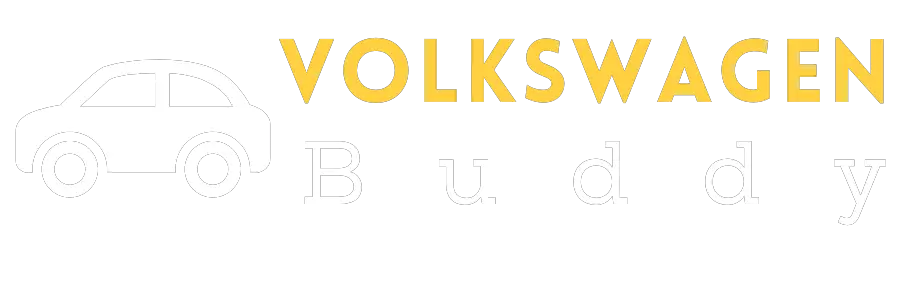Is A Volkswagen Passat All Wheel Drive [Solved]
The Volkswagen Passat is a mid-size sedan that has been in production since 1973. It is available in both front-wheel-drive and all-wheel-drive configurations. The all-wheel-drive system on the Passat is called 4Motion and it is a permanent all-wheel-drive system that uses a Haldex coupling to distribute power between the front and rear axles.
So, Is A Volkswagen Passat All Wheel Drive
No, the Volkswagen Passat is not an all-wheel drive vehicle.
Is a Volkswagen Passat All Wheel Drive?
The Volkswagen Passat is a mid-size sedan that has been in production since 1973. It is currently in its eighth generation, which was introduced in 2018. The Passat is available with a variety of engines, including a turbocharged four-cylinder engine and a turbocharged V6 engine. It is also available with front-wheel drive or all-wheel drive.
All-wheel drive (AWD) on the Volkswagen Passat
The Volkswagen Passat is available with all-wheel drive on all trim levels except the base S trim. The all-wheel drive system on the Passat is called 4Motion. 4Motion is a permanent all-wheel drive system that uses a Haldex clutch to distribute power between the front and rear wheels. The Haldex clutch is controlled by an electronic control unit (ECU) that monitors the driving conditions and adjusts the amount of power that is sent to the rear wheels.
Benefits of all-wheel drive on the Volkswagen Passat
There are a number of benefits to having all-wheel drive on the Volkswagen Passat. These benefits include:
Improved traction in slippery conditions: All-wheel drive provides better traction in slippery conditions, such as snow, ice, and rain. This can make it easier to drive in these conditions and reduce the risk of accidents.
Improved handling: All-wheel drive can also improve handling, especially in corners. This is because all-wheel drive helps to distribute the weight of the vehicle more evenly, which can reduce body roll.
Increased stability: All-wheel drive can also increase stability, especially at high speeds. This is because all-wheel drive helps to keep the vehicle under control in windy conditions or when driving on uneven surfaces.
Drawbacks of all-wheel drive on the Volkswagen Passat
There are a few drawbacks to having all-wheel drive on the Volkswagen Passat. These drawbacks include:
Increased fuel consumption: All-wheel drive systems typically use more fuel than front-wheel drive systems. This is because all-wheel drive systems have to work harder to distribute power to all four wheels.
Increased weight: All-wheel drive systems also add weight to the vehicle. This can reduce fuel economy and handling.
Increased cost: All-wheel drive systems are typically more expensive than front-wheel drive systems.
Conclusion
Overall, all-wheel drive is a good option for the Volkswagen Passat if you live in an area with slippery or unpredictable weather conditions. All-wheel drive can provide improved traction, handling, and stability, which can make it easier to drive in these conditions and reduce the risk of accidents. However, all-wheel drive also has some drawbacks, such as increased fuel consumption, weight, and cost. You should weigh the benefits and drawbacks of all-wheel drive before deciding if it is right for you.
Also Read: Is A Volkswagen Tiguan 4 Wheel Drive
FAQs: Is a Volkswagen Passat All Wheel Drive?
Is the Volkswagen Passat available with all-wheel drive?
Yes, the Volkswagen Passat is available with all-wheel drive. The all-wheel drive system is called 4Motion and it is available on all trim levels of the Passat.
What are the benefits of having all-wheel drive on a Volkswagen Passat?
There are several benefits to having all-wheel drive on a Volkswagen Passat. First, all-wheel drive provides better traction in slippery conditions, such as snow, ice, and rain. This can make it safer to drive in these conditions. Second, all-wheel drive can improve handling and performance, especially on winding roads. Third, all-wheel drive can help to improve fuel economy, as the car does not need to work as hard to maintain traction.
What are the drawbacks of having all-wheel drive on a Volkswagen Passat?
There are a few drawbacks to having all-wheel drive on a Volkswagen Passat. First, all-wheel drive adds weight to the car, which can reduce fuel economy. Second, all-wheel drive systems can be more expensive to maintain than front-wheel drive systems. Third, all-wheel drive systems can be more difficult to repair than front-wheel drive systems.
Is all-wheel drive worth it on a Volkswagen Passat?
Whether or not all-wheel drive is worth it on a Volkswagen Passat depends on your needs and driving conditions. If you live in an area with snowy or icy winters, or if you frequently drive on winding roads, then all-wheel drive may be a good option for you. However, if you live in an area with mild winters and you do not drive on winding roads, then all-wheel drive may not be worth the extra cost and maintenance.
How much does it cost to add all-wheel drive to a Volkswagen Passat?
The cost of adding all-wheel drive to a Volkswagen Passat varies depending on the trim level of the car. On the base S trim level, all-wheel drive costs an additional $1,500. On the SE trim level, all-wheel drive costs an additional $1,800. On the SEL trim level, all-wheel drive costs an additional $2,000. On the SEL Premium trim level, all-wheel drive costs an additional $2,200.

![Are Volkswagen Tiguan 4 Wheel Drive [Find Out]](https://volkswagenbuddy.com/wp-content/uploads/2024/06/are-volkswagen-tiguan-4-wheel-drive-find-out_4840-768x531.jpg)

![Is The Volkswagen Jetta All Wheel Drive [Discovered]](https://volkswagenbuddy.com/wp-content/uploads/2024/06/is-the-volkswagen-jetta-all-wheel-drive-discovered_4758-768x531.jpg)

![Can You Tow A Volkswagen Tiguan On All Four Wheels [Disclosed]](https://volkswagenbuddy.com/wp-content/uploads/2024/06/can-you-tow-a-volkswagen-tiguan-on-all-four-wheels-disclosed_4846-768x531.jpg)
